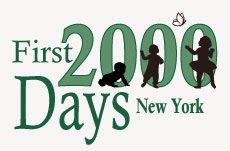You need to provide your infant/toddler a variety of experiences because she will get an opportunity to develop her learning style.
Linguistic
Learner :likes to: read, write and tell stories.
is good at: memorizing names, places,
dates and trivia.
learns best by: saying, hearing and
seeing words.
Logical/Mathematical
Learner
likes to: do experiments, figure things
out, work with numbers, ask questions andexplore patterns and relationships.
is good at: math, reasoning, logic and
problem solving.
learns best by: categorizing,
classifying and working with abstract patterns/relationships.
Spatial Learner
likes to: draw, build, design and
create things, daydream, look at pictures/slides,watch movies and play with
machines.
is good at: imagining things, sensing
changes, mazes/puzzles and reading maps,charts.
learns best by: visualizing, dreaming,
using the mind's eye and working withcolors/pictures.
Musical Learner
likes to: sing, hum tunes, listen to
music, play an instrument and respond to music.
is good at: picking up sounds,
remembering melodies, noticing pitches/rhythms and keeping time.
learns best by: rhythm, melody and
music.
Bodily/Kinesthetic
Learner
likes to: move around, touch and talk
and use body language.
is good at: physical activities
(sports/dance/acting) and crafts.
learns best by: touching, moving,
interacting with space and processing knowledgethrough bodily sensations.
Naturalistic
Learner
likes to: be outside, with animals,
geography, and weather; interacting with thesurroundings .
is good at: categorizing, organizing a
living area, planning a trip, preservation, and conservation.
learns best by: studying natural
phenomenon, in a natural setting, learning about howthings work.
Interpersonal
Learner
likes to: have lots of friends, talk to
people and join groups.
is good at: understanding people,
leading others, organizing, communicating ,manipulating and mediating
conflicts.
Learns best by: sharing, comparing,
relating, cooperating and interviewing.
Intrapersonal
Learner :Likes to: work alone and pursue own
interests.
is good at: understanding self,
focusing inward on feelings/dreams, followinginstincts, pursuing
interests/goals and being original.
Learns best by: working alone,
individualized projects, self-paced instruction andhaving own space.









